A Year Later, Atlanta ‘Forever a Different Community’
A year after the shooting at Pittsburgh's Tree of Life synagogue, Jews around the country and here in Atlanta are still grappling with the tragedy.
Dave Schechter is a veteran journalist whose career includes writing and producing reports from Israel and elsewhere in the Middle East.
Take this as a snapshot of Atlanta’s Jewish community a year after a gunman massacred 11 Shabbat morning worshippers in the Tree of Life synagogue in Pittsburgh.
The rabbi of an Atlanta congregation began Rosh Hashanah and Yom Kippur services by instructing worshippers on which doors to exit in the event they needed to evacuate and where the children in daycare would be taken.
Told about this announcement, which was made out of an abundance of caution rather than because of a specific threat, the reaction from members of other congregations was less surprise that one rabbi had done so, than that others had not.
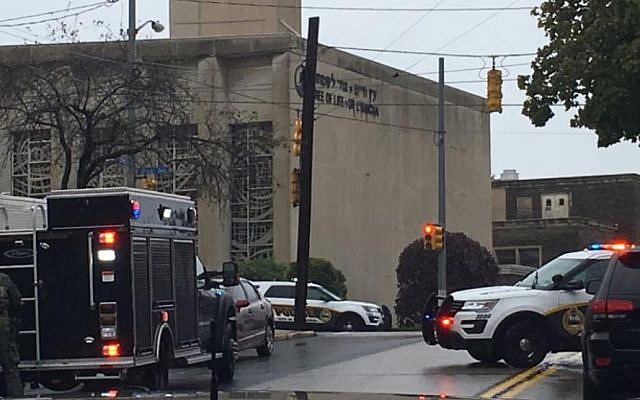
The president of another synagogue spoke during services about a major increase in spending to enhance security, an expenditure that has taxed and stressed congregation budgets throughout Atlanta.
Worshippers have come to expect, accept, and appreciate a greater police presence outside synagogues.
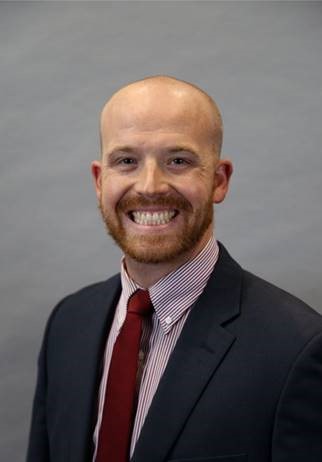
Before the High Holy Days, the deputy director of community-wide security for the Jewish Federation of Greater Atlanta, Zach Williams, wrote to police chiefs and sheriffs with Jewish institutions in their jurisdiction: “I ask that if possible, you dedicate additional resources for increased patrols and response capabilities during these times. Many of your officers have/or will be working at some of our institutions over these dates – a service that is greatly valued and appreciated.”
In an email to congregations before the holidays, Williams included a list of security recommendations and a planning checklist, along with an “airline safety card” that synagogues could, if they chose to, place on seats in their sanctuaries, highlighting the location of exits.
That is how the year 5779 ended and 5780 began.
As it happened, several of Atlanta’s Jewish leaders have ties to Pittsburgh and the heavily-Jewish Squirrel Hill neighborhood that is home to Tree of Life.

Federation president and CEO Eric Robbins had just returned from Israel on the morning of Oct. 27, 2018, and despite his jet lag, had gone to services at Congregation Shearith Israel. After being informed by a congregant about the shootings, Rabbi Ari Kaiman took the Pittsburgh native aside and told him of the breaking news.
A year later, what Robbins remembers of the week that followed, one of vigils and memorial services, is “Being in a state of shock, disbelief and anger. The feeling that I had lost members of my family.”
The tragedy affected Robbins personally and professionally. “It made me realize that even the utopia of my childhood could be shattered. My job is more important than I ever thought it could be,” he said.
“I mean this in terms of security, but also psychically. We have tightened and enhanced security and we have realized that anti-Semitism continues to fester, and we also realize that we need to double down on Jewish identity and Jewish pride. It makes the work we do in building and strengthening a community more important than ever,” Robbins said.
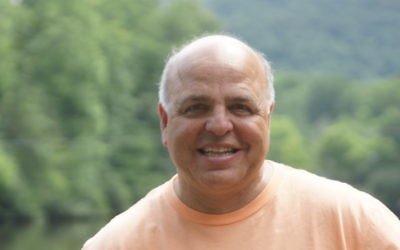
Bobby Harris, the director of Camp Coleman and of youth and camping services for the southeast region of the Union for Reform Judaism, grew up in Monroeville, a suburb 15 miles from Pittsburgh, and his family were members of the Tree of Life.
That morning, Harris saw a friend’s Facebook post about an active shooter at Tree of Life, turned on CNN and saw a friend in Pittsburgh being interviewed, then called another friend there. “I was at the same time in total disbelief that it had happened and fully aware that it actually was happening,” he said.
“And then there was the waiting all day Saturday. I suspected that I would know some of the victims – and I did. From my earliest memories around 1964 until my dad’s death in 2009, my family, especially my father, was incredibly involved in Tree of Life. As a child and teenager, I remember being greeted every Friday night service by Rose (Mallinger) and her husband Morry Mallinger; such kind, warm, and helpful people. I knew a few who we lost that day, but I remember Rose the most,” he said.
His grief remains. “I will be at a meeting, lecture, or social event and someone will make a reference and say something about ‘the Tree of Life shooting’ and I am immediately overtaken by a deep sadness that lingers. Of course, I wasn’t there that day, but it is a place where I always used to be – and it hurts to the bone,” Harris said.
“As someone who was often left to my own devices on Friday nights while my parents socialized with their friends at the oneg, I explored the many rooms of the synagogue and its secret hallways. I learned every nook and cranny. I know the rooms where people were shot and where people hid. It is difficult that I now have these violent images in my mind painted over the memories that made me feel so safe and comfortable my entire life.”
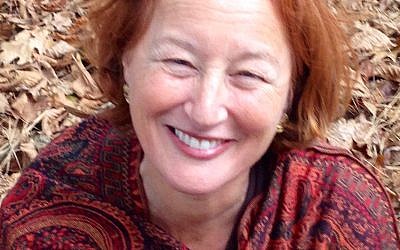
Beth Gluck, southeast regional director of the Jewish National Fund, was attending a national JNF meeting in Phoenix. “My most vivid memory was believing that it was the Conservative synagogue where my aunt and family go every Shabbat [Congregation Beth Shalom, which her family helped start].
“The community is small. If it hadn’t been our synagogue, it would have been the one a short block from my home. I couldn’t believe what I was hearing. It was surreal,” Gluck recalled. “The situation was immensely personal for me. My family is integrated very deeply into the community. I knew three of the people who were killed, plus some of their family members.
“Squirrel Hill was truly ‘Mister Rogers’ Neighborhood’ [Fred Rogers lived in Squirrel Hill]. Its values permeated every aspect of my life and who I am today. The tragedy shattered my sense of ‘home’ as a protected womb and brought to my eyes the reality of ‘Yes, it will be in my backyard,’” Gluck said.
Reflecting on the community where she grew up and the one where she now lives, Gluck said, “I’m not sure, but I hope that the value of Pittsburgh being a networked and inter-dependent community before the tragedy has had an impact on Atlanta. We must align in our sameness and our differences before a horrific act forces us together in pain.”
Stephanie Wyatt, chief development officer for Jewish HomeLife, grew up at Pittsburgh’s Beth Shalom. “I had just finished a morning walk and my friend called me to see if I was okay. I had no idea what he was talking about. He went on to tell me there was a synagogue shooting in Pittsburgh. I was in shock. I could not imagine anything like that ever happening in my hometown,” she said.
Find out the challenges and goals our Jewish 40 under 40 are facing., the adult education director at Chabad Intown, remembers “a large and vibrant Chabad community” in Squirrel Hill. He was in services when a congregant told him the news.
“I remember the deep sense of dread seep through me as I was trying to make sense of the news. It was a painful day, and even one year later, I can’t say that I’ve made sense of what happened,” Sollish said. “The Squirrel Hill that I know is a place where Jews are proud and strong members of the larger community, where neighbors, no matter their religion, get along and live peacefully, where ethnic diversity is celebrated. To me the notion that in Pittsburgh someone would enter a synagogue – or any house of worship – with murderous intent is so profoundly impossible. But tragically, the impossible happened.”
In the year since, “I’ve become more driven to intentionally spread messages of tolerance and diversity, and to bring more light into the world,” Sollish said. As an example, he cited “Inclusion and the Power of the Individual,” a book he authored, based on the teachings of the late Lubavitcher Rebbe Menachem Mendel Schneerson.
“I don’t think we can ever make sense of the tragedy of loss, especially the loss of 11 beautiful souls, and another seven injured, while gathered in synagogue on Shabbat in prayer. The most powerful response we can offer, in my opinion, is to commit to being living examples of proud and tolerant Jews, Jews who are deeply committed to our unique individuality while honoring the individuality of others,” Sollish said.
Rabbi Stephen Chaim Listfield was the rabbi at Tree of Life from 2006 to 2009. Now living in Atlanta, Listfield travels once a month to Huntsville, Ala., to conduct services at Etz Chayim (Tree of Life, in Hebrew). That’s where he was the morning of Oct. 27, 2018. His cell phone was on the lectern and at 10:30 a.m. (CDT) he saw a text from his wife, Leslie Parker, that read “Shooting at Tree of Life. Multiple fatalities.” More texts followed, from his wife and former congregants in Pittsburgh. Once he returned to his hotel room mid-afternoon, he “basically spent the rest of the day and most of the night learning from my Pittsburgh friends about the horrible details as they slowly emerged.”
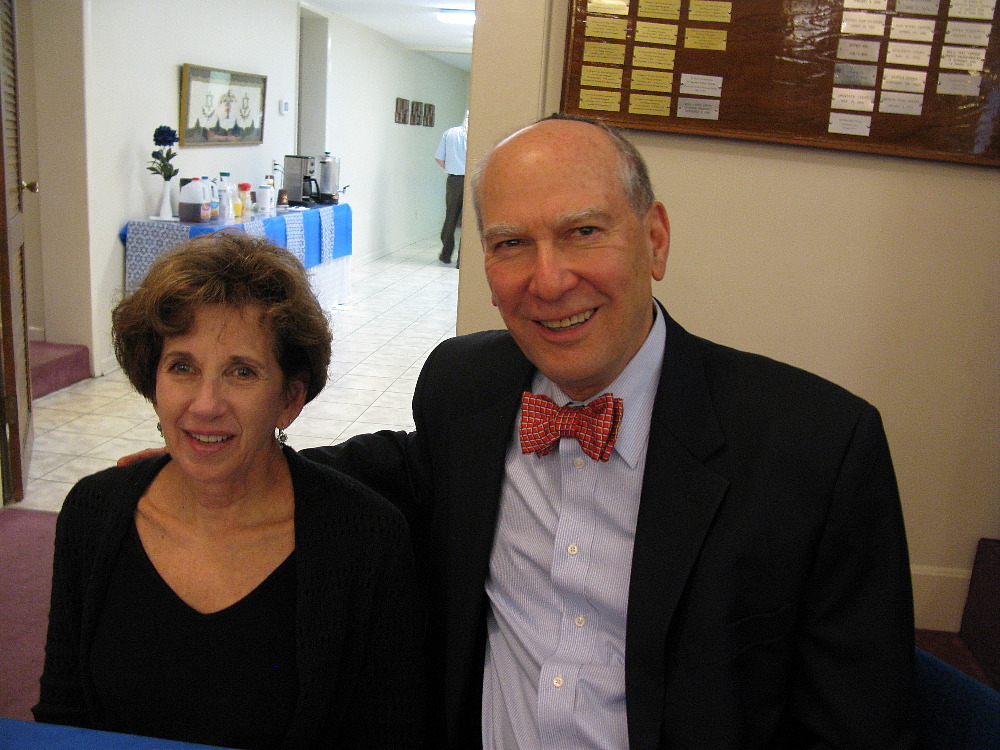
“My main memory is that the people who were killed were among the gentlest and most innocent of human beings I had ever met. The pain that all of us felt at such a horrible event was maddeningly ironic for me because I knew the nature of five of the victims. Bernice and Sylvan Simon were a sweet and happy couple who had been married more than 60 years. All they wanted was to be with each other and to enjoy a smile with other people. Rose Mallinger was a 97-year-old gentlewoman, a real lady in every sense of the word. And Cecil and David Rosenthal both had Fragile X, a relatively rare genetic condition which causes intellectual and cognitive disabilities. I had a special feeling for them because my son has Fragile X,” Listfield said.
Among the realities of post-Pittsburgh Jewish life, “I find it immensely sad that our community – both the religious community and the civic community – are compelled to spend millions of dollars on security in order to safeguard people at worship. One would expect that in the civilized time in which we live, we would have the priority of spending these millions of dollars on brotherhood and sisterhood, on education and culture, on joy and pleasure. The lesson? We are not so civilized after all,” Listfield said.
If the message of “safety first” for synagogues, schools and other Jewish institutions was not driven home sufficiently by the Tree of Life tragedy, it was reinforced six months to the day, on April 27, 2019, when a gunman killed one worshipper and wounded several others, including the rabbi, at the Chabad center in Poway, Calif.
“The community is clearly more on edge,” said Dov Wilker, regional director of the American Jewish Committee in Atlanta. “I can’t speak to the security aspects, as that is not my line of work, but I know that people are definitely more vigilant, more fearful and are trying to determine, what does this mean for me? There are people who won’t attend Jewish institutions anymore out of fear.
“There is just more of a security-minded culture in our shul now, and our staff and congregants are more vigilant and aware of their surroundings,” said Rabbi Mark Zimmerman at Atlanta’s Congregation Beth Shalom.
“The community can no longer take our safety for granted,” Wyatt said. “See something, say something. We must all be cognizant of our surroundings and take precautions when necessary. Always be prepared. We take security seriously at Jewish HomeLife and are constantly looking at how we can improve. We are taking what we learned from a recent visit to Tree of Life and enhancing our plans to make sure our staff, residents, and families feel safe and prepared in case of an emergency.”
One of Robbins’ first calls on Oct. 27, 2018, was to Cathal Lucy, a Secret Service veteran who was then the Federation’s director of community-wide security. When Lucy left that post this summer, many of his duties were picked up by Williams, who came to the Federation from the Georgia Emergency Management and Homeland Security Agency.
“I have seen now more than ever a desire from those outside the community to look for innovative ways to partner on the topic of security. Additionally, I think that there has been a paradigm shift within the community to see security as necessary, and not a necessary evil,” Williams said.
To defray the cost of security, the Jewish community nationally makes good use of the federal Nonprofit Security Grant Program. Since the program’s inception in 2005, Congress has appropriated some $270 million and awarded more than 2,000 grants for at-risk nonprofit organizations – the bulk going to the Jewish community.
Local Jewish institutions have received nearly $3.43 million in NSGP funds the past four years, including more than $1 million in fiscal year 2019. The recipients file through the Georgia Emergency Management Agency to receive the federal funds as reimbursement for spending on pre-approved security upgrades.
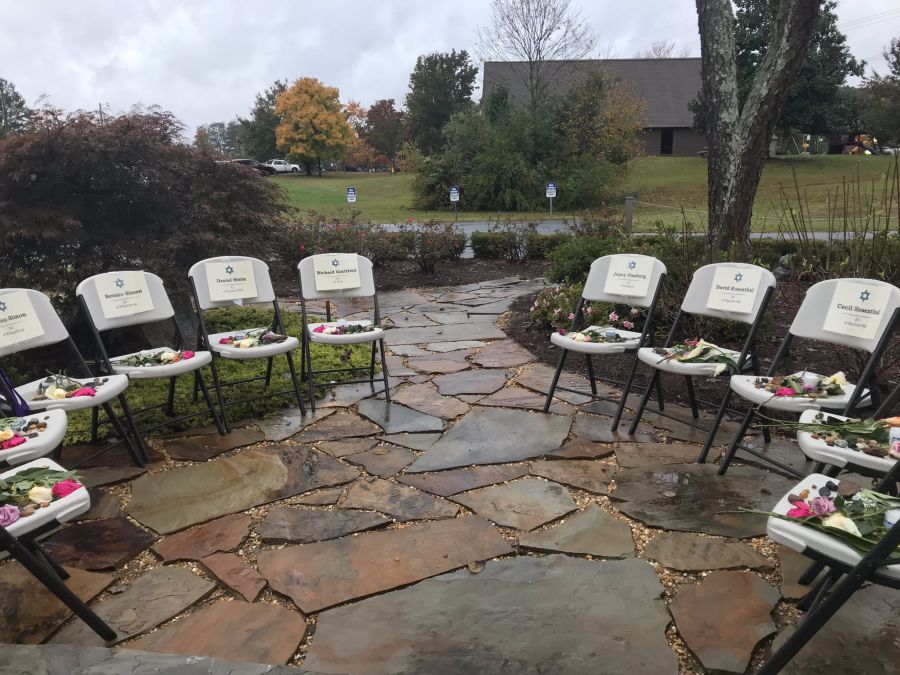
The fiscal year 2019 recipients were Congregation Beth Tefillah, Temple Emanu-El, Temple Kehillat Chaim, Young Israel of Toco Hills [now called Ohr HaTorah], The Jewish Tower, the Jewish Kids Groups program, and one non-Jewish institution, Zion Missionary Baptist Church.
Under a separate piece of the program, $199,000 was awarded to institutions outside of metro Atlanta to be divided between Congregation B’Nai Israel in Albany, Ga.; Camp Ramah Darom in Clayton, Ga., and Nahunta First Baptist Church in Nahunta, Ga.
The Federation recently announced a partnership with the Secure Community Network to manage its security programs. SCN, an initiative of The Jewish Federations of North America and the Conference of Presidents of Major American Jewish Organizations, is staffed by former law enforcement, security and military personnel. In 2001, Atlanta was the first Jewish community to hire a director of community security. JFGA and SCN will work together to hire a new director.
A year after the tragedy at the Tree of Life, Robbins, the Squirrel Hill native who leads Atlanta’s largest Jewish organization, puts it simply, “We are forever a different community.”



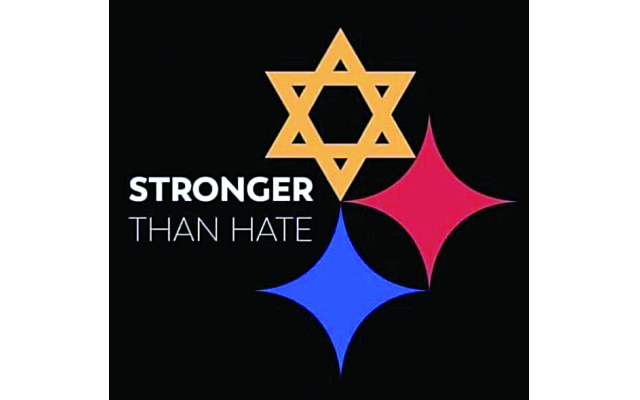
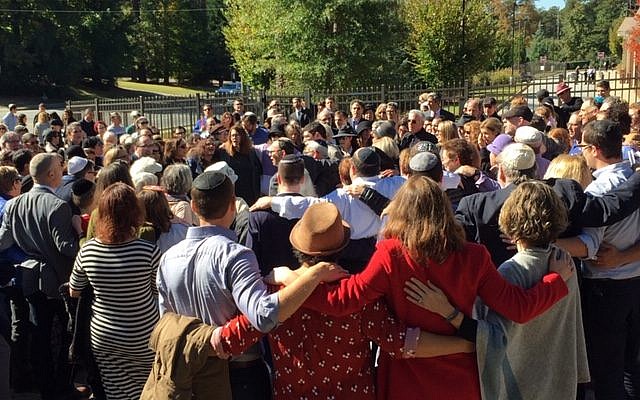
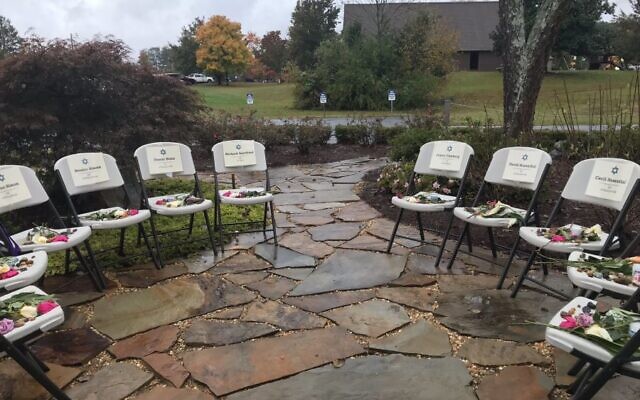
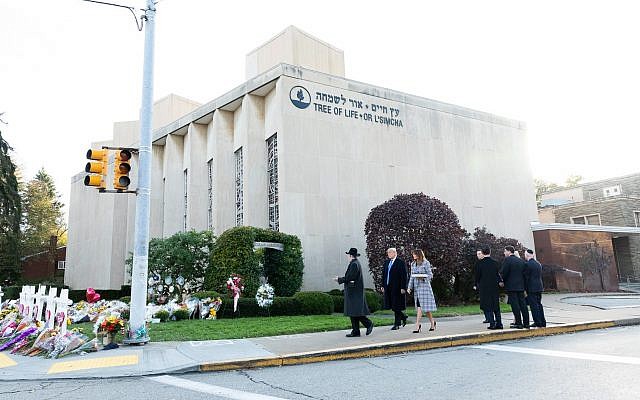
comments